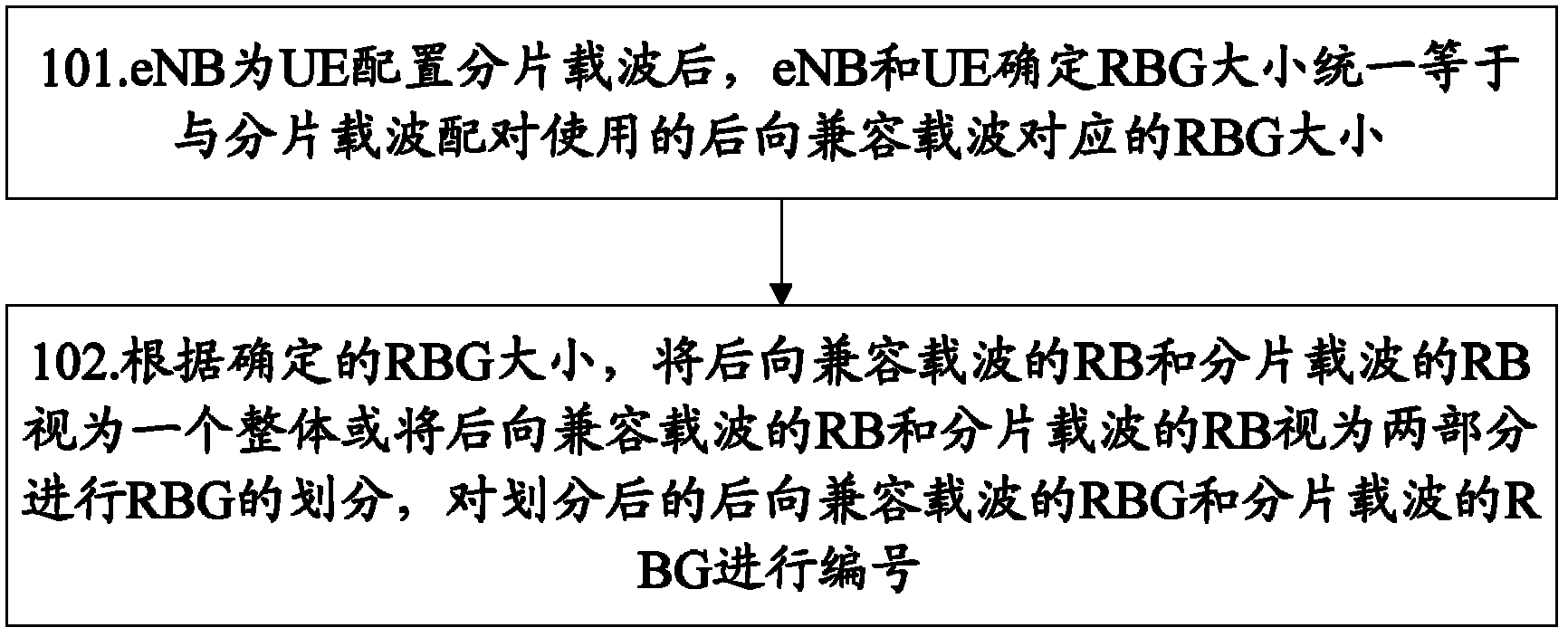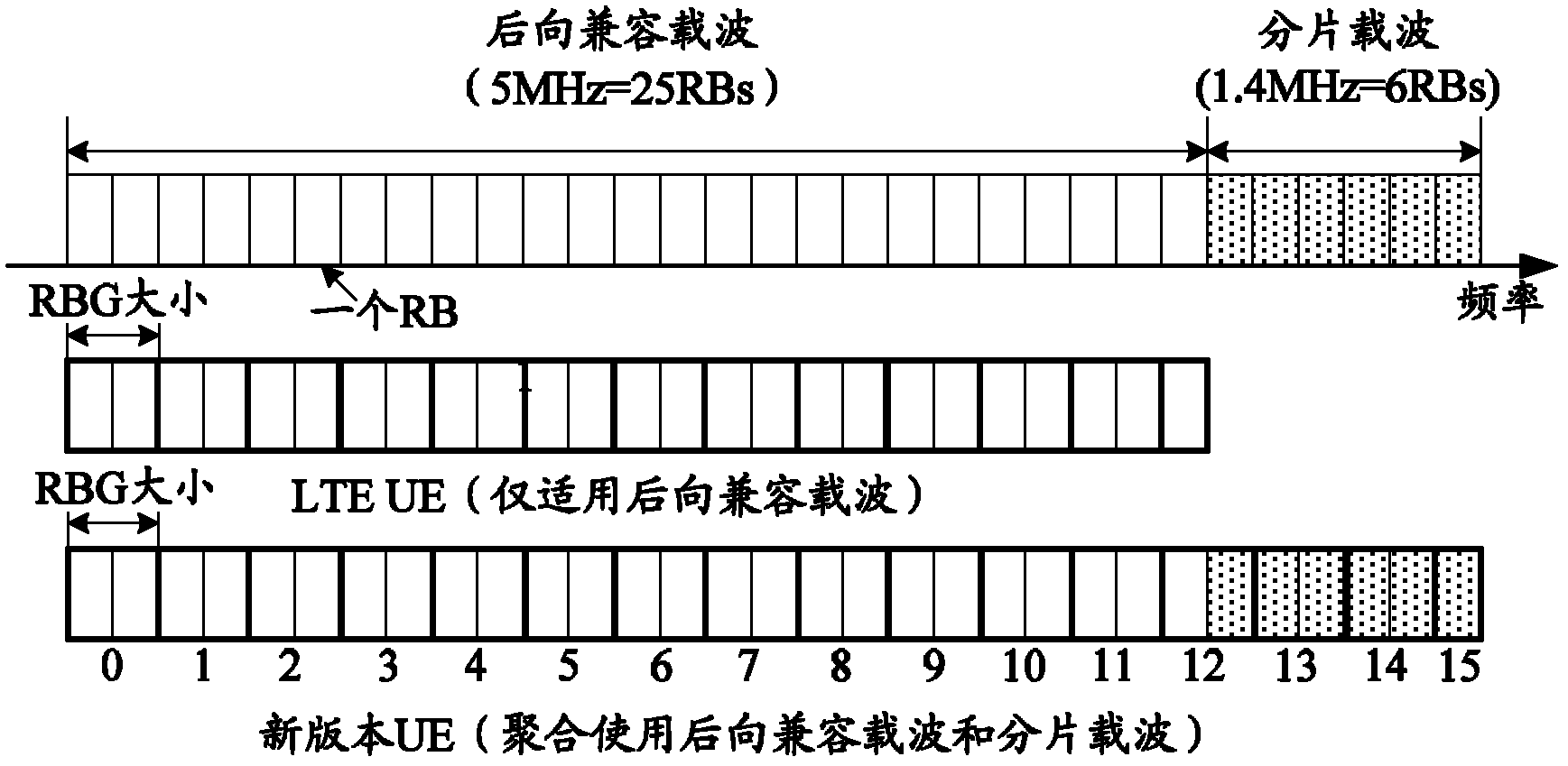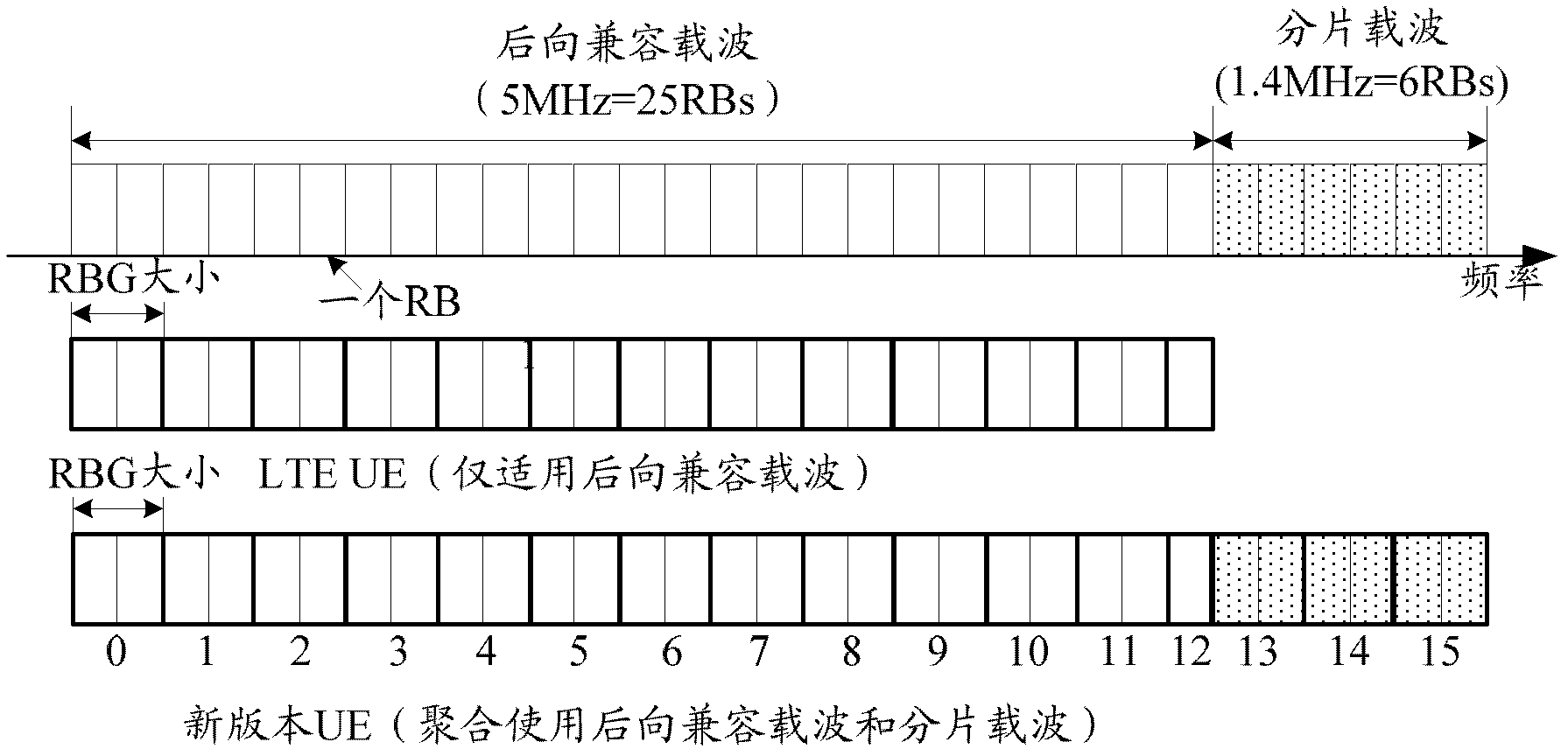Method and device for determining size and number of resource block group (RBG) after fragmentation carrier configuration
A technology to determine the method and carrier, which is applied to the separation device of the transmission path, signaling allocation, sub-channel allocation of the transmission path, etc., can solve the problem of RBG size inconsistency, and achieve the effect of solving the confusion of resource allocation and being convenient to use
- Summary
- Abstract
- Description
- Claims
- Application Information
AI Technical Summary
Problems solved by technology
Method used
Image
Examples
Embodiment 1
[0072] In this embodiment, the new version UE aggregation uses a 5MHz backward compatible carrier and a 1.4MHz sliced carrier. When performing resource allocation, the mapping table between carrier bandwidth and RBG size in R8 is used, as shown in Table 1. The RBG size corresponding to the 5MHz backward compatible carrier is 2, and the RBG size corresponding to the 1.4MHz fragmented carrier is 1. According to the division method and numbering method of the present invention: the unified RBG size after aggregation is before and after the fragmented carrier is configured. The RBG size of the compatible carrier, that is, the RBG size corresponding to the 1.4MHz fragmented carrier is also 2;
[0073] After determining the size of the RBG, serially number the RBG of the backward compatible carrier and the RBG of the fragmented carrier, specifically: consider the RB of the backward compatible carrier and the RB of the fragmented carrier as a whole, and divide the RBG according to t...
Embodiment 2
[0075] In this embodiment, the new version UE aggregation uses a 5MHz backward compatible carrier and a 1.4MHz fragmented carrier; when performing resource allocation, the mapping table between carrier bandwidth and RBG size in R8 is used, as shown in Table 1, The RBG size corresponding to the 5MHz backward compatible carrier is 2, and the RBG size corresponding to the 1.4MHz fragmented carrier is 1. According to the division method and numbering method of the present invention: the unified RBG size after aggregation is before and after the fragmented carrier is configured. The RBG size of the compatible carrier, that is, the RBG size corresponding to the 1.4MHz fragmented carrier is also 2;
[0076] After determining the size of the RBG, serialize the RBG of the backward compatible carrier and the RBG of the fragmented carrier, specifically: regard the RB of the backward compatible carrier and the RB of the fragmented carrier as two parts, and divide them according to the dete...
Embodiment 3
[0078] In this embodiment, the new version UE aggregation uses a 5MHz backward compatible carrier and a 1.4MHz fragmented carrier; when performing resource allocation, the mapping table between carrier bandwidth and RBG size in R8 is used, as shown in Table 1, The RBG size corresponding to the 5MHz backward compatible carrier is 2, and the RBG size corresponding to the 1.4MHz fragmented carrier is 1. According to the division method and numbering method of the present invention: the unified RBG size after aggregation is before and after the fragmented carrier is configured. The RBG size of the compatible carrier, that is, the RBG size corresponding to the 1.4MHz fragmented carrier is also 2;
[0079] After determining the size of the RBG, number the RBG of the backward-compatible carrier and the RBG of the wave-sliced carrier separately, specifically: regard the RB of the backward-compatible carrier and the RB of the segmented carrier as two parts, respectively, according to ...
PUM
 Login to View More
Login to View More Abstract
Description
Claims
Application Information
 Login to View More
Login to View More - R&D
- Intellectual Property
- Life Sciences
- Materials
- Tech Scout
- Unparalleled Data Quality
- Higher Quality Content
- 60% Fewer Hallucinations
Browse by: Latest US Patents, China's latest patents, Technical Efficacy Thesaurus, Application Domain, Technology Topic, Popular Technical Reports.
© 2025 PatSnap. All rights reserved.Legal|Privacy policy|Modern Slavery Act Transparency Statement|Sitemap|About US| Contact US: help@patsnap.com



